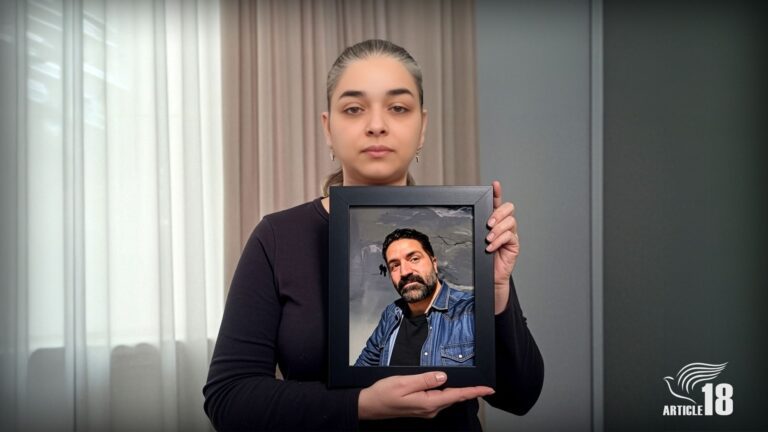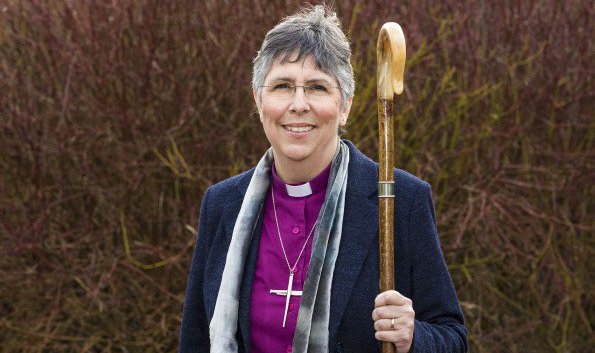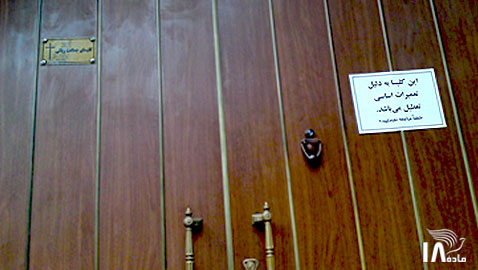
Augustine still has nightmares about his time in prison and the multiple “gruelling” interrogation sessions he was subjected to following his arrest.
The 34-year-old, who converted to Christianity at the age of 18, was in his mid-20s when he and his mother were arrested by agents of Iran’s Islamic Revolutionary Guard Corps (IRGC).
But though the agents who ransacked their home told them they were being arrested, Augustine says they provided no explanation and that as a result “we didn’t realise they were arresting us because of our Christian beliefs and activities”.
Augustine and his mother lived in the north-western city of Urmia – home to one of the largest communities of Iranian Christians of Assyrian or Armenian descent.
But as converts weren’t permitted to enter their churches, Augustine and his mother used to travel to Tehran to attend the Persian-speaking churches that still operated in the early 2010s, before their forced closure.
The new converts became members of the largest such church around – the Central Assemblies of God Church in Tehran – but after that too was forced to close its doors in 2013, Augustine and his mother again found themselves without a church.
It was in the wake of this, as Augustine’s faith became reliant upon his personal practices, that he began to explore Catholicism, and in 2016 both he and his mother were baptised into the Catholic Church in a private ceremony in Istanbul.
They were arrested just six months later, but although in their subsequent interrogations it soon became clear that they had been arrested on account of their faith, their particular interest in Catholicism seemed even to surprise their interrogators.
“Is there even such a thing as a person who was Muslim becoming Catholic?” one of Augustine’s interrogators asked.
Augustine was held in an IRGC detention centre for 18 days, during which he was held in a “very small, windowless cell” in which the light was always on.
“The conditions of the cell were in themselves a form of psychological torture,” Augustine says, and “psychological torture is much worse than physical torture, because after a while the pain of psychical torture stops, but not the pain of psychological torture”.
Meanwhile, Augustine was subjected to repeated interrogation sessions, during which he was sometimes “interrogated for seven or eight hours, from morning to night”.
“One of these times,” he says, “they threatened me, saying: ‘You can’t get married. If you ever get married, your wife will be our guest on the first night. We will be happy to oblige!’
“They had become aware of my sensitivities and especially my interest in continuing my education, and said: ‘Don’t think about continuing your studies in Iran anymore. You can’t study in this country anymore. You have to kiss university goodbye. You can’t work. You have no future in Iran anymore.’”
These threats, Augustine says, “hurt my soul and broke me from the inside”.
After two and a half weeks, Augustine was transferred to the Central Prison in Urmia, which he found so “terrible” – “as someone who had never even been to a police station before” – that for the first few weeks he was even “afraid to go to the bathroom alone and would ask another prisoner to come with me”.
“But because of my fear, I became constipated,” he adds.
And while Augustine says that the other prisoners were “generally kind to me”, after the reason for his arrest became known, one prisoner, a convicted murdered, put a knife to his throat and told him that because he was a Christian, shedding his blood was “permissible”.
After two months’ detention, Augustine and his mother were taken to court – another experience that has stayed with him.
“They paraded me around inside the courthouse,” Augustine says, “and others who saw me with chains on my feet and cuffs on my hands must have thought I was a dangerous criminal.”
Augustine says the experience was “very humiliating” and that when he saw his mother in shackles and chains, with a chador over her head, he was “very upset and suffered from the mental trauma of this for a long time”.
Augustine was finally released on bail after 74 days’ detention, and his mother was released two weeks later, but four months on they were sentenced to five years each in prison on charges of “acting against national security by forming a group to propagate and attract to Christianity”.
Their sentences were later reduced and, as neither intended to leave the country, they served their time. But following their release, Augustine received a call from an unknown person, who told him, “threateningly”, that he had six months to leave the country.
Not wanting to worry his parents, Augustine says that he didn’t tell them about the call and only said he no longer felt that he had a future in Iran because his criminal record had affected his employment opportunities.
And so, like so many other Iranian Christians, Augustine left his homeland and travelled over the border to Turkey.
Augustine says the pain of his forced exile is “still fresh” in his mind and that even as he crossed the border he “stared at the [Iranian] flag with a lump in my throat and thought to myself that I might never be able to never to my country”.
Augustine now lives in Italy, where he is training to be a priest, but though years have passed since his arrest and enforced exile, he says the “destructive effects of prison have damaged my soul and mind” and he doesn’t think their impact “will ever go away”.
The Catholic convert has struggled with depression, which he says is partly because he is a “patriot and always pursued my education in various fields in the hope that one day I would be able to use my knowledge to serve my country”.
And as well as the nightmares that he still suffers from, Augustine says “another symptom” of his trauma is a newfound forgetfulness.
“I forget names,” he explains. “For example, I have forgotten the names of my cellmates, even though some of them helped me. And although before I went to prison, when I read something carefully I could remember the page number and paragraph, after this trauma I can’t remember many things and it makes me very angry not being able to retrieve the information I am seeking.”
“I live alone,” he adds, “and have become increasingly isolated. I don’t have contact with anyone now; not even anyone back home.”
You can read Augustine’s full Witness Statement here.



0 Comments